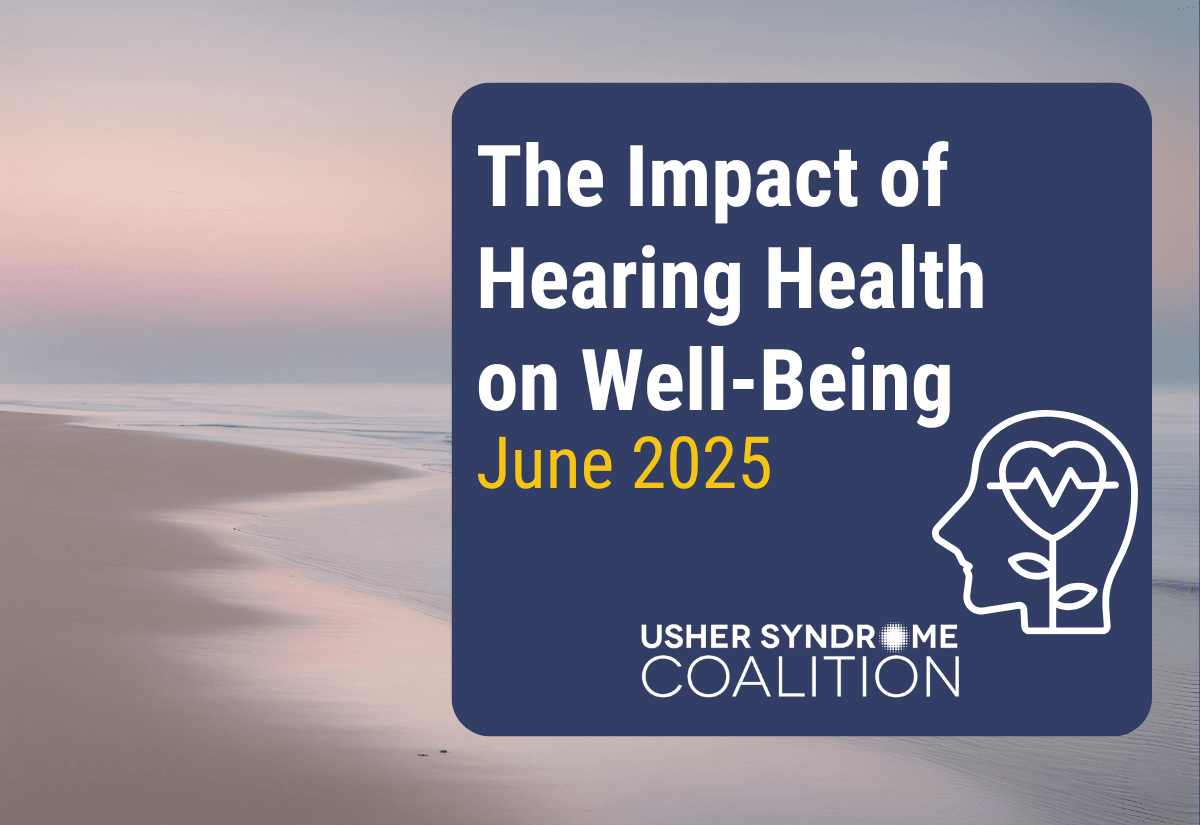
By Robyn Culpepper, Au.D., CCC-A, F-AAA, ABA
Hearing loss is one aspect of Usher syndrome that affects each type and subtype. Hearing loss at birth or during adolescence can disrupt abilities to understand conversations, have awareness of safety in different environments, decrease involvement in social activities, affect the ability to learn effectively while in school, and impact possible success in a career.
Even though there is a range of severity with hearing loss and Usher syndrome, once discovered, any type of hearing loss should be treated promptly. Hearing does not occur within the ears, it actually occurs in the brain. With hearing loss, treatment is highly recommended due to improved ability of the brain to process sounds, increased speech understanding, speech/language development, cognitive function, and social development.
Once hearing loss is discovered, a treatment plan is then initiated. Medical intervention, hearing aids, or cochlear implants are the typical treatments recommended. Medical intervention doesn’t typically work for Usher syndrome due to the type and severity of hearing loss. While treating hearing loss is a popular recommendation, it does not mean that someone is not able to engage in learning ASL and other forms of communication for their lifestyle.
Hearing devices are one resource that allow for improved communication and functionality in a world that is not made for those who are hard of hearing or Deaf. Annual hearing tests allow for proper maintenance of hearing as accurately as possible. Hearing aid adjustments and cochlear implant mapping are important for daily living. Our listening situations change consistently. If the hearing changes, adjustments need to be made to ensure proper amplification is occurring in all environments. Consistent use of amplification devices is recommended to ensure appropriate stimulation of the auditory pathways are always occurring within the brain.
Maintaining annual hearing tests leads to consistent monitoring of equipment working correctly. If a device is muffled, has battery drain, distortion, static, or cutting in and out, it is usually able to be repaired and allow for optimal success of hearing. If devices begin to fail when out at social activities, in school settings, sporting events, it is going to create an even larger challenge for someone to understand conversations due to already having hearing loss.
Without properly working devices, the impact of hearing loss can lead to isolation and depression in all ages. Safety also becomes a concern when equipment isn’t functioning at optimal levels, example: out running in a busy city, CI coil breaks and suddenly there is no sound from one side. How can we decipher what direction a car horn is coming from or can we hear a car about to turn onto the same road that we are about to cross? Daily or weekly cleaning can help ensure proper functionality of amplification devices. While hearing loss with Usher syndrome is not able to be corrected, it can be treated and effectively allow for optimal communication to take place.







